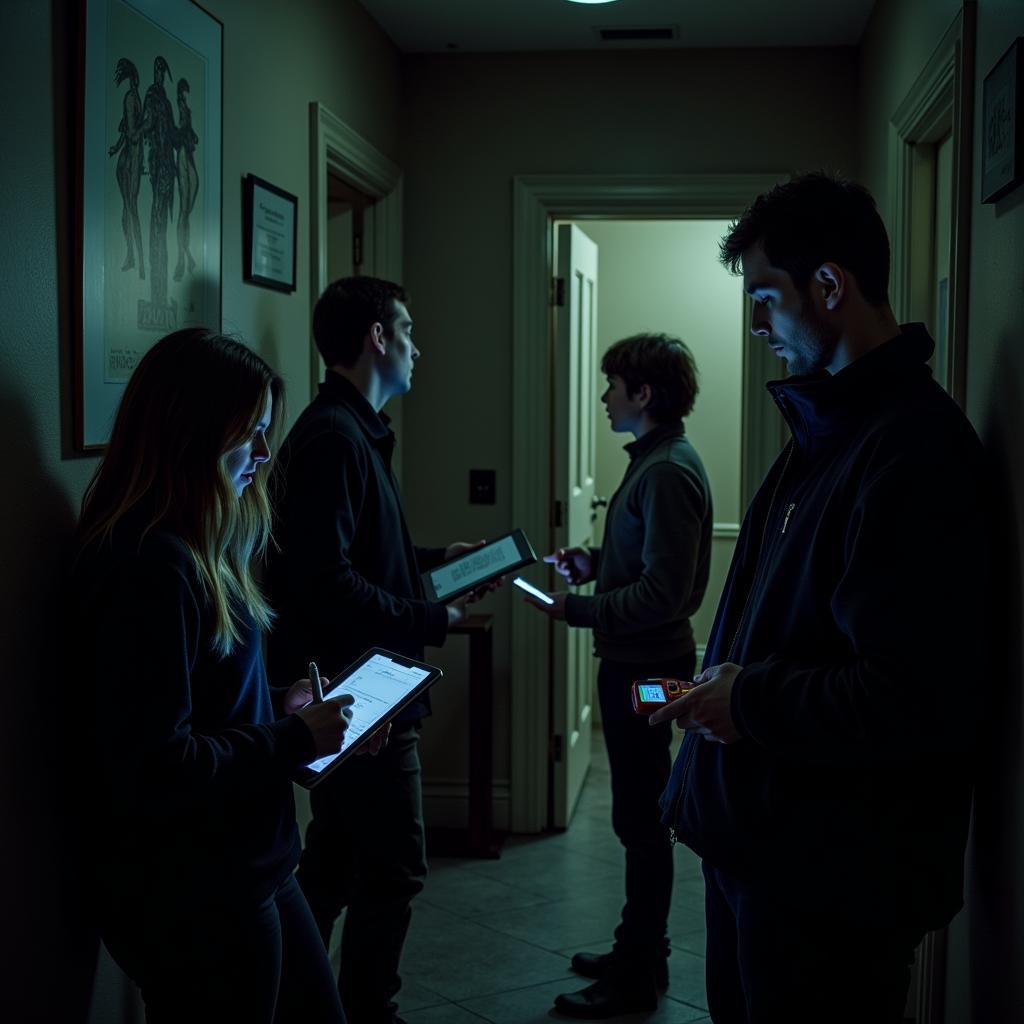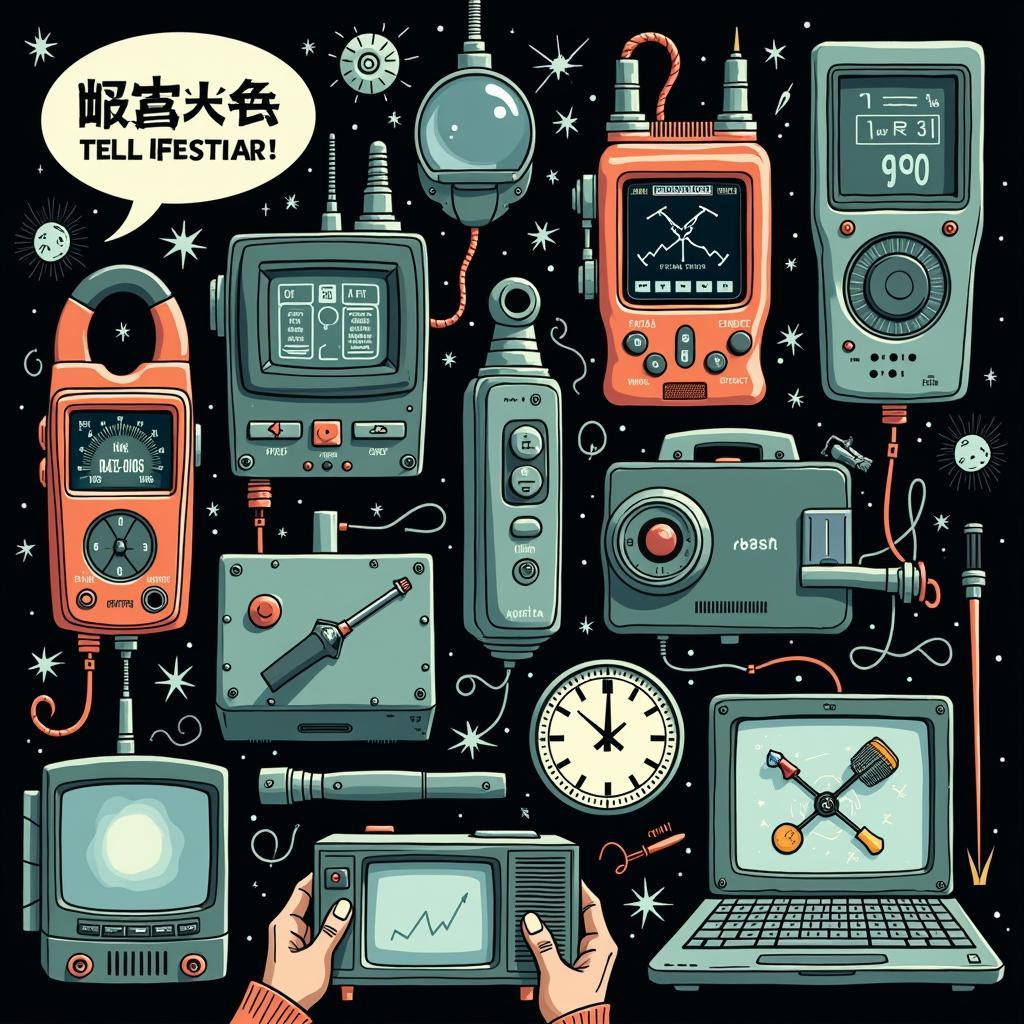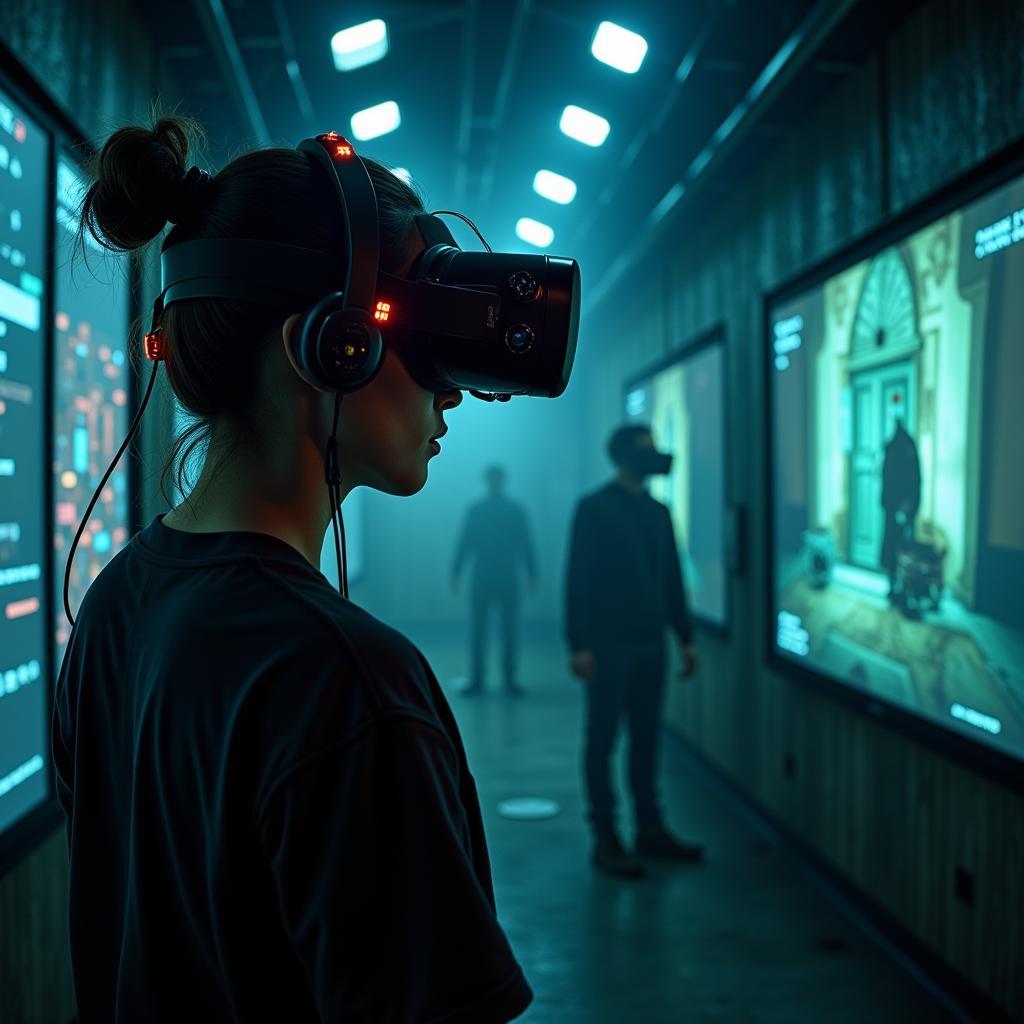Experiential Research plays a crucial role in understanding the paranormal. It’s a world shrouded in mystery, where anecdotal evidence often takes center stage. But how do we move beyond personal stories and into the realm of verifiable data? This exploration delves into the fascinating intersection of experiential research and paranormal investigation. We’ll examine the methodologies, challenges, and potential of this unique approach to uncovering the truth behind unexplained phenomena.
After the initial shock and awe of a paranormal encounter, a deeper curiosity often emerges. This is where experiential research comes in, providing a framework for exploring these experiences in a structured and meaningful way. It allows us to move from passive observers to active investigators, seeking to understand the nature of these elusive occurrences. This research method emphasizes direct, personal experience as a valuable source of data, particularly useful in a field where traditional scientific methods often fall short. Check out the Collaborative Policy Research: Handbook of Experiential ClientFacing Research.
What is Experiential Research in the Paranormal?
Experiential research in the paranormal involves actively participating in investigations and documenting personal experiences within a structured framework. This method acknowledges the subjective nature of paranormal encounters while striving to collect data in a systematic way. It incorporates various techniques, from controlled experiments in reportedly haunted locations to personal accounts of psychic phenomena.
How Does Experiential Research Differ from Traditional Research?
Unlike traditional scientific research, which relies on objective observation and measurable data, experiential research acknowledges the subjective nature of paranormal experiences. This makes it uniquely suited to investigating phenomena that often defy conventional measurement and observation. While traditional science might dismiss personal accounts as anecdotal, experiential research embraces them as a valuable data source.
 Experiential Research in Paranormal Investigation
Experiential Research in Paranormal Investigation
The Challenges of Experiential Research
Experiential research, while valuable, faces its own unique set of challenges. Subjectivity, replicability, and the influence of belief are just a few of the hurdles researchers must navigate. Maintaining objectivity while immersed in potentially emotionally charged situations requires careful consideration and rigorous methodology. The ephemeral nature of paranormal events also makes replication a significant challenge.
Overcoming Subjectivity in Experiential Research
One of the key challenges in experiential research is managing subjectivity. Because the research often involves personal experiences, ensuring objectivity can be difficult. However, by employing standardized protocols, detailed documentation, and multiple observers, researchers can mitigate the impact of personal bias.
Why is Experiential Research Important in the Paranormal Field?
Experiential research offers a unique perspective that complements traditional scientific inquiry. It allows researchers to explore the human element of paranormal experiences, understanding how individuals perceive and interact with these phenomena. This approach is invaluable in a field where the boundaries of human perception and consciousness are often tested. Learn more about our Professional Researcher Certification.
 Paranormal Research Tools and Techniques
Paranormal Research Tools and Techniques
The Role of Technology in Experiential Research
While personal experience is central to this research method, technology plays a crucial supporting role. Tools like EMF meters, thermal cameras, and audio recorders can provide objective data that corroborates or challenges subjective experiences. The integration of technology enhances the credibility and rigor of experiential research. Perhaps you are interested in the Leadership Research Institute.
The Future of Experiential Research in Paranormal Investigation
The future of experiential research in paranormal investigation lies in developing more sophisticated methods for data collection and analysis. Integrating advanced technologies, such as virtual reality and biofeedback sensors, holds the potential to provide richer, more quantifiable data. This evolution promises to bridge the gap between subjective experience and objective measurement, pushing the boundaries of our understanding of the unknown.
“Experiential research offers a crucial bridge between subjective experience and objective measurement in the field of paranormal investigation,” says Dr. Emily Carter, a leading researcher in parapsychology. “By combining rigorous methodology with an open mind, we can gain valuable insights into the nature of these enigmatic phenomena.”
 The Future of Paranormal Research
The Future of Paranormal Research
Conclusion
Experiential research offers a powerful tool for exploring the paranormal. By embracing subjective experience within a structured framework, researchers can gain valuable insights into this fascinating and often misunderstood field. While challenges remain, the ongoing development of new methodologies and technologies promises to further unlock the mysteries of the paranormal through experiential research. Contact us for support at Phone: 0904826292, Email: research@gmail.com or visit us at No. 31, Alley 142/7, P. Phú Viên, Bồ Đề, Long Biên, Hà Nội, Việt Nam. We have a 24/7 customer support team.
FAQ
- What is experiential research?
- How is experiential research used in paranormal investigations?
- What are the limitations of experiential research?
- What are some examples of experiential research in the paranormal?
- How can I get involved in experiential research?
Common Scenarios:
- Feeling a presence in a supposedly haunted location.
- Witnessing unexplained light phenomena.
- Hearing disembodied voices or sounds.
Further Exploration:
- Consider reading more about Montessori Global Research Institute
- Explore other articles on our website related to paranormal investigation techniques.
“The key to understanding the paranormal lies in embracing both the subjective and objective,” adds Dr. Carter. “Experiential research allows us to do just that.” “By combining personal experience with rigorous data collection, we can move closer to unraveling the mysteries of the unknown.” states Professor Alex Walker, a renowned expert in anomalous phenomena. Constructivist views of learning are grounded in the research of can offer further perspectives on this approach.